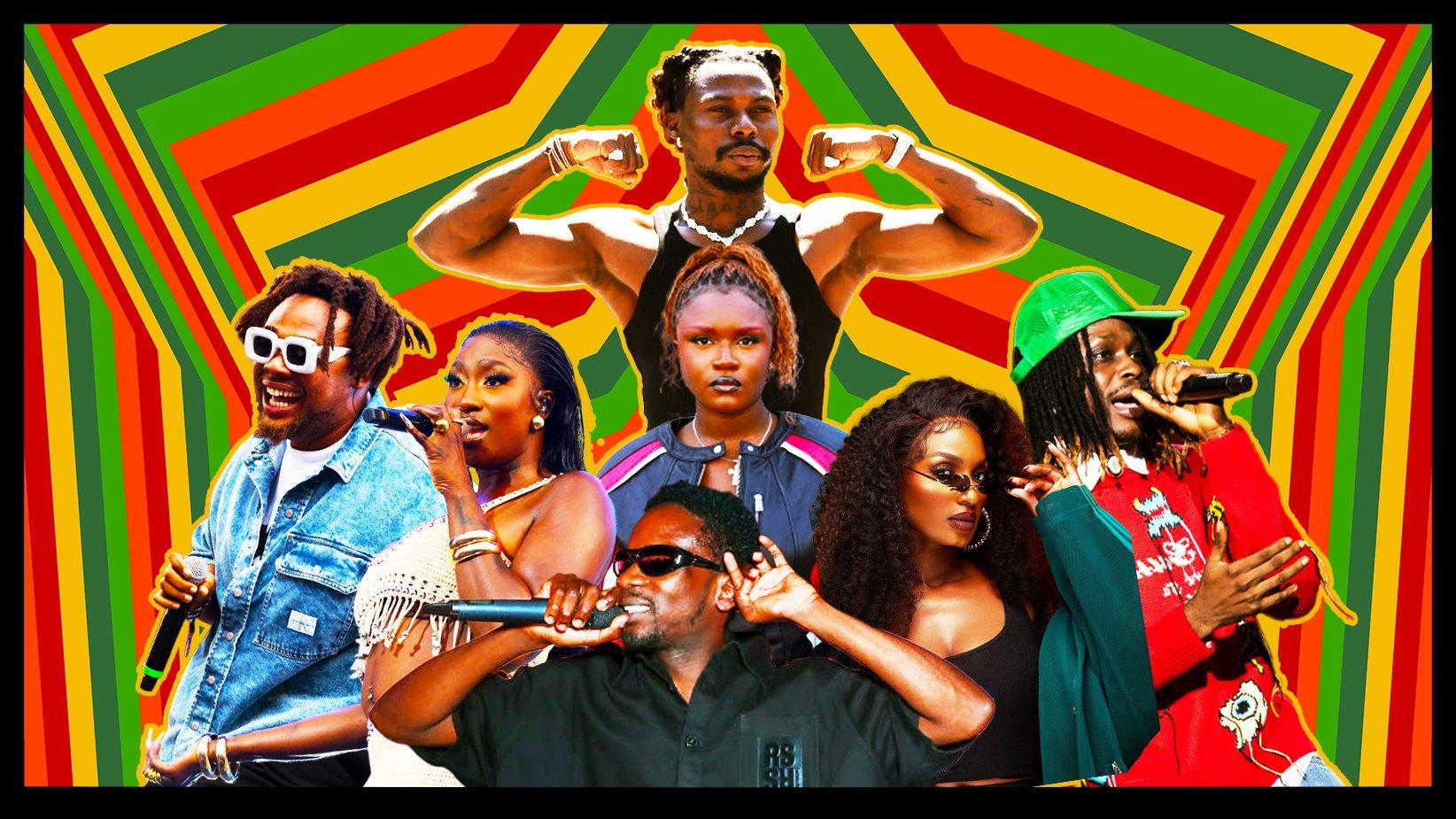For its upcoming 66th GRAMMY Awards in February, the recording academy has debuted a new music category for African music. The need to create the Best African Music Performance, according to the recording academy, is to ‘celebrate the diversity and richness of Africa’. Beyond the honour, this new category signals an ambitious breakthrough for contemporary Nigerian and Ghanaian pop music, often referred to as Afrobeats.
The West-African genre develops partly from the music of the late 20th-century Nigerian instrumentalist and musician Fela Kuti, who pioneered the Afrobeat genre. Yet “Afrobeat” and “Afrobeats” differ in more marked ways than just morphology. With influences from jazz, highlife and Fuji, an indigenous Yoruba genre, Kuti’s Afrobeat featured long, orchestral solos that took swipes at Africa’s leaders and societal ills. Afrobeats, in contrast, is more inclined to sound beats than to politics. Its lyrics—sprinkled with pidgin English—are sometimes obscene, glorifying sex and cybercrime. Still Kuti remains an endless source of inspiration for many Afrobeats artistes, who regularly sample Kuti in their music.
Like its precursor, Afrobeats is a hybrid of a varied collection of genres, including Hip hop, R&B and jazz. Recent Afrobeats jams have now incorporated Amapiano, a South-African sub-genre that reverberates with strong percussive bass lines. This eclectic blend of sounds perhaps explains the genre’s wide popularity among millions of listeners outside Africa. In 2022, Afrobeats music got 13 billion streams, according to Spotify, a music-streaming platform.
“The attention the global world is paying to Afrobeats now is what African artistes have prayed for for decades. In a way it’s an answered prayer,” said Olaniyi Luke, a podcast host.
Similarly, for many African citizens, Afrobeats’ catchy melodies provide a delicious escape from the myriad economic troubles of the continent. From the long traffic queues in Lagos to packed-out stadiums in London, Afrobeats charms listeners with its sparky sounds and infectious rhythms. Across social media, a cultlike following has formed around some of its notable stars. Davido and Wizkid, two of Afrobeats’ hottest entertainers, have garnered such enthusiastic supporters on Twitter and Instagram that match those of Lionel Messi and Cristiano Ronaldo.
Several artistes have protested against the use of an umbrella label for popular West-African music. For such artistes, Afrobeats is rather a misnomer and does not fit the nuances of their musical gestalt. Accordingly, new monikers, such as Afrosoul, Afrorave and Afrohouse, have been coined. Burna Boy, a frothy Nigerian artiste notorious for his braggadocio, has rejected the Afrobeats label, describing his music as Afrofusion. In 2021, Burna Boy’s Twice as Tall, released during the pandemic, won the World Best Album at the GRAMMYS.
Notwithstanding, Afrobeats represents more than a music genre to its posse of performers. Adopting the slogan ‘Afrobeats to the World’, African artistes hope to enact an Afrocentric movement that unites Africans at home and in the Diaspora. In a bid to seek newer audiences and boost their royalty, many more West-African artistes are collaborating with Western pop sensations—Sam Smith and Drake, for example. This strategic penetration into the international music markets has produced chart-topping songs such as Calm Down, the 2022 summer groove by Nigerian singer Rema and Selena Gomez, an American singer. In 2023, ‘Calm Down’ became the longest-charting African song on the Billboard Hot 100. In 2019, Beyoncé, an American pop icon, featured a number of Afrobeats singers for her Lion King: The Gift, which coincided with the release of Disney’s Lion King film.
The growing need of international pop acts to turn to Afrobeats for new direction in their careers highlights the potential and creativity of African music. Yet that is hardly the primary motivation. Afrobeats, as Luke reckons, is drawing attention from the international community “because the genre is finally lucrative.”
“Afrobeats artistes do more shows in Europe and North America than they do in Nigeria. Afrobeats songs are going viral on TikTok. So it’s all about money in the end,” Luke said.
This global success, however, has not translated into significant economic gains in the genre’s countries of origin, which have been cut off from the windfall revenues of their native music. Western record labels, for the most part, enjoy a lion’s share of Afrobeats’ exponential growth through ticket sales and sponsorship deals. “A lot of foreign labels have signed African artistes because they make money when they sign these guys,” Luke said.
Of course, this should be a cause for concern for the countries’ leaders, but they are more preoccupied with clinging to political power and splurging on borrowed funds.






